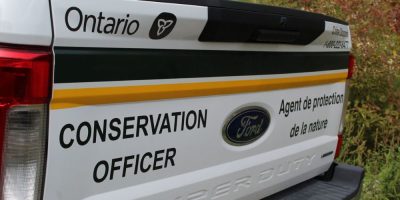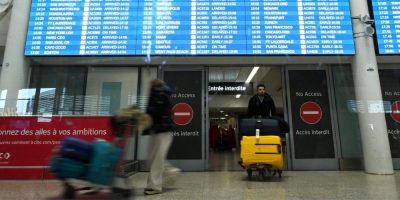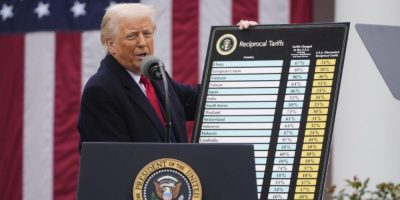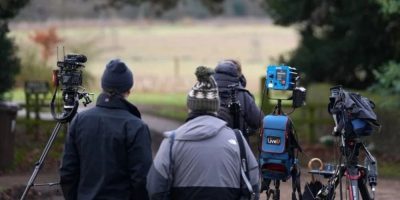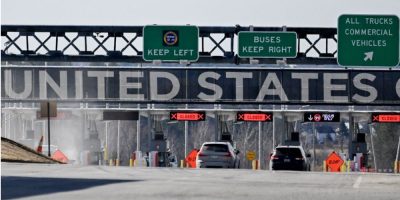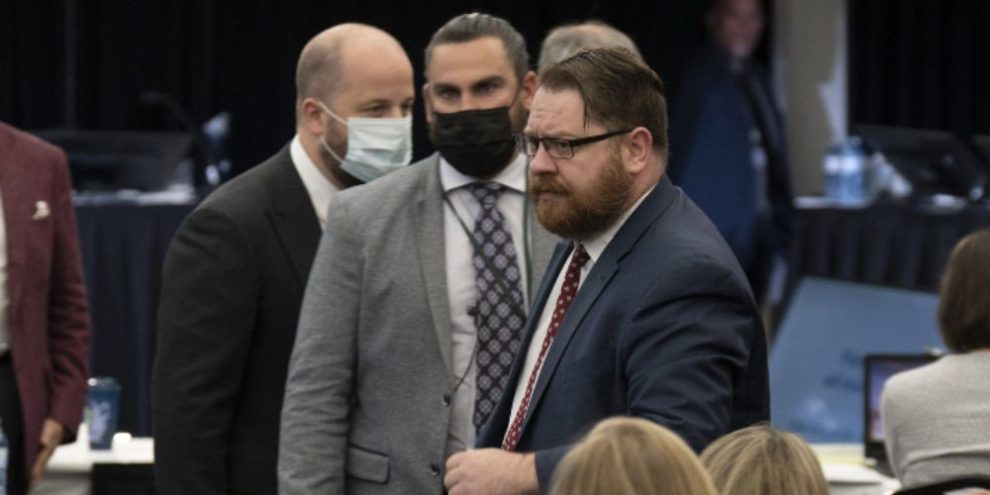
By Laura Osman, Stephanie Taylor and David Fraser in Ottawa
Tensions boiled over at the public inquiry into the government's use of the Emergencies Act Tuesday during the testimony of the lead federal minister on the file, resulting in the lawyer representing organizers of the "Freedom Convoy" being escorted out of the building.
Brendan Miller, who represents some protest organizers including Tamara Lich, interrupted Public Safety Minister Marco Mendicino's testimony Tuesday to ask that the minister's director of communications, Alex Cohen, be called to testify.
Justice Paul Rouleau, the commissioner presiding over the inquiry, asked security to remove Miller from the hearing room after Miller spoke over the commissioner and accused him of refusing to rule on similar applications.
"I'm trying to do my job," Miller told reporters outside of the Library and Archives building in Ottawa where the hearings are being held.
He said he's made several applications to call other witnesses and to ask that documents provided by the federal government be unredacted.
"They have tried to turn this entire proceeding into an inquiry about the failures of (former Ottawa police chief Peter) Sloly as opposed to actually about the invocation of the Emergencies Act. And my duty to my clients and my duty as a lawyer is to uncover the truth."
Lich, who testified before the commission weeks ago, pulled Miller away from reporters.
Rouleau said he would consider allowing Miller back into the room if his clients request it.
Mendicino testified Tuesday that he was concerned about the "Freedom Convoy" protest breaking out in violence, even before demonstrators arrived in Ottawa.
Videos like the one posted by controversial convoy figure Pat King that referred to the protest ending in bullets was a "signal of intent," Mendicino told the commission.
Several federal cabinet ministers were worried about their personal safety from the outset of the protest in Ottawa, because some demonstrators had posted online about targeting their homes, the inquiry heard.
Notes from a Jan. 26 ministerial briefing show RCMP were aware of protesters trying to gather the home addresses of MPs, including the prime minister, and were concerned the protest could break apart to include several locations close to politicians' homes.
RCMP increased security around several ministers and Canada's chief public health officer, Dr. Theresa Tam, because the protests were focused on COVID-19 public health restrictions, Mendicino explained.
Protesters arrived in Ottawa two days later and parked hundreds of vehicles to block city streets for weeks, while similar protests blockaded international border crossings.
Prime Minister Justin Trudeau declared a public order emergency on Feb. 14, calling the protests a national crisis that put public safety and economic security at risk.
The legislation granted extraordinary powers to police, governments and banks to revoke the protesters' rights to assemble in certain spaces, freeze bank accounts and compel the co-operation of tow truck companies to remove trucks.
This report by The Canadian Press was first published Nov. 22, 2022.
Banner image via The Canadian Press


